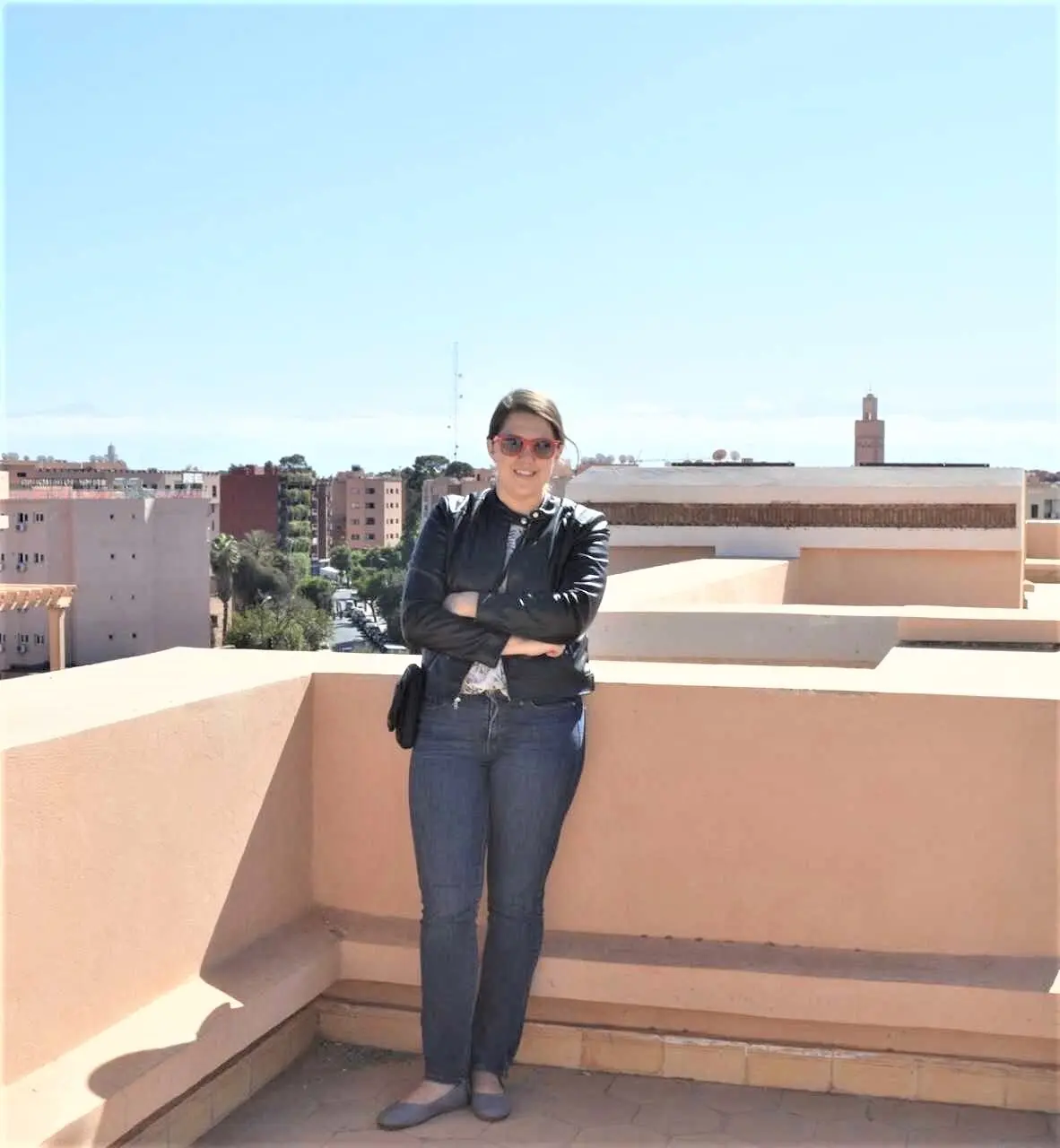Kate DiTullio – UMass Lowell Alumna History Spotlight

My Career
I started teaching in 2014 at a small charter school in Lowell for at-risk students. Even though it was challenging in terms of classroom management, it was the best place I could have begun my career. My colleagues were a close-knit group of people who supported me when I had students acting out because they resented me for replacing a well-loved teacher who had retired at the end of the previous school year. The students’ defiance and anger didn’t last forever, though. When they saw that I wasn’t going to abandon them mid-year, those same difficult students started to trust me, and managing a classroom became a lot easier after that point. My first year as a teacher was really intense. Not only did I have a lot of students who lived with challenges I have never had to face, but I also was trying to find my teaching style and figure out my values as an educator. If there are any future teachers in the history department, I hope they know that the first year of teaching is the hardest, and that they will need supportive colleagues and friends to thrive in it.
After two years at the charter school, I moved to teaching at a private day school in New Hampshire. I was ready to work on developing my curricular skills, and needed more resources than my first school could provide to do that. (For example, I was the only teacher in the history department at my first school; there was no one in the building I could consult about resources directly related to my discipline!) I taught at the private school for three years, and grew tremendously as an educator in that time. I think what I most appreciated at my second school was the academic nature and mindset of many of the people there. Our lunchtime conversations were often wide-ranging and fascinating. In fact, I became good friends with our school’s librarian over one lunch after the 2016 election. We were both concerned with the rise of “fake news”, both in the literal sense (people falling for hoaxes) and as a label for news someone doesn’t like. To help our students combat this new threat, she and I put together a unit on media literacy for the ninth-grade history classes. That collaboration with her was transformational for me. She helped me see that the research skills I had honed in college were useful for everyday life—were, in fact, essential for responsible citizenship. This lesson has become a cornerstone of my teaching in the years since.
Now I’m fulfilling a dream I’ve had since my days at UML, that of teaching internationally. I knew I wanted a change after deciding to leave the private school, and gave international teaching a fair try. I was delighted to get a job teaching high school history at an American school in Marrakech, Morocco! Living and teaching in Morocco are challenging and rewarding in different ways than my first two jobs. My students are being brought up with sometimes competing values than the ones I try to teach, and I have to walk a delicate line between forcing my culture on them and teaching them how to manage in a world dominated by Western culture. I’m also finding that living overseas is helping me evaluate my morals and life goals more concretely than I could do when I lived in the culture I was raised in. For all the challenges, though, I find I am grateful for the experiences I get to have in my stint of international teaching. They are changing me.
UML's History Department Helped Me…
- Learn how to write in a succinct and straightforward manner.
- Practice the research skills that have enabled me to learn and teach material I have not encountered before.
- Evaluate sources to use with my students now. (Or even know which sources exist out there—a massive “thank you” to Dr. Strobel for all the materials he gave us in my M.Ed. class, “World History for History Teachers”!)
- Understand what it is like to have a positive and strong student-teacher relationship. (I was homeschooled after 5th grade, so didn’t have that experience in high school.) Staying after class with welcoming professors showed me that I wanted to be that kind of teacher. Every time a student stays after my class to discuss the material or their lives, I remember my UML days with a small burst of joy.
- Make friends who I am in touch with to this day.
Upon reflection, I think what made UML’s History department so wonderful for me was the community there. My graduating class (2013) was close-knit and enjoyed each other’s company, as well as that of our professors. When we talk about our college days, we still remember the people who worked so hard to invest in us as students of history, yes—but also as individuals worth their time and attention. Such respect and care for their students is, I think, a testament to the intellect, humanity, and kindness that abounds among the faculty of the UML History Department.
Kate has also written an essay, "What History Can Teach Us", available on her blog.
